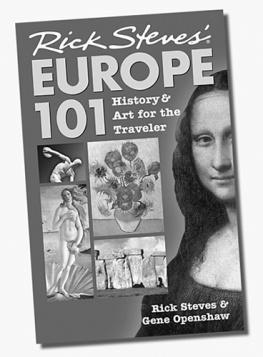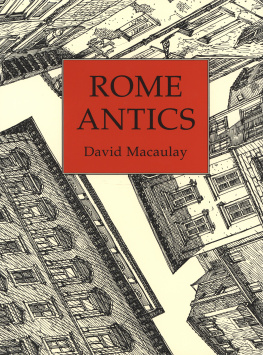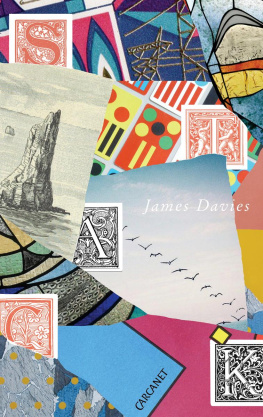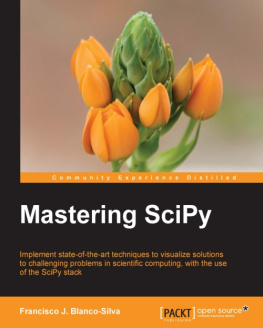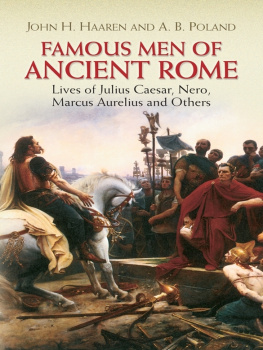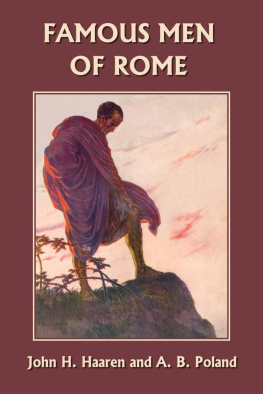John Stack - Master of Rome
Here you can read online John Stack - Master of Rome full text of the book (entire story) in english for free. Download pdf and epub, get meaning, cover and reviews about this ebook. genre: Adventure. Description of the work, (preface) as well as reviews are available. Best literature library LitArk.com created for fans of good reading and offers a wide selection of genres:
Romance novel
Science fiction
Adventure
Detective
Science
History
Home and family
Prose
Art
Politics
Computer
Non-fiction
Religion
Business
Children
Humor
Choose a favorite category and find really read worthwhile books. Enjoy immersion in the world of imagination, feel the emotions of the characters or learn something new for yourself, make an fascinating discovery.

- Book:Master of Rome
- Author:
- Genre:
- Rating:4 / 5
- Favourites:Add to favourites
- Your mark:
- 80
- 1
- 2
- 3
- 4
- 5
Master of Rome: summary, description and annotation
We offer to read an annotation, description, summary or preface (depends on what the author of the book "Master of Rome" wrote himself). If you haven't found the necessary information about the book — write in the comments, we will try to find it.
John Stack: author's other books
Who wrote Master of Rome? Find out the surname, the name of the author of the book and a list of all author's works by series.
Master of Rome — read online for free the complete book (whole text) full work
Below is the text of the book, divided by pages. System saving the place of the last page read, allows you to conveniently read the book "Master of Rome" online for free, without having to search again every time where you left off. Put a bookmark, and you can go to the page where you finished reading at any time.
Font size:
Interval:
Bookmark:
John Stack
Master of Rome
TUNIS, NORTH AFRICA. 255 BC
The colossal animal surged forward against the crack of the bullwhip, its momentum increasing into an unstoppable charge as it bellowed in anger and terror, the scent of men fuelling its rage. It lifted its head and gazed ahead through hooded yellow eyes. The scene before it was a blur of movement, a dark horde that threw up a terrifying wall of sound; the hammering of ten thousand shields, the war cries of a multitude. The elephant bellowed once more, sweeping its scimitar-shaped tusks high into the air as the whip cracked against its hide.
The ground beneath the beast trembled and shook. Dust smothered its throat, the thirst maddening, while slowly the host before the creature drifted into focus, the mass into individual men. A sharp pain shot through the elephants flank and it immediately turned its head to the site of injury, the blood stark against the grey hide. Every instinct called for flight, but years of brutal training demanded obedience and the bullwhip drove the creature on.
The elephant crashed headlong into a wall of shields and the war cries of men changed to screams of pain, the momentum of the creatures charge driving it deep into the Roman maniples. The legionaries struck out with shield and sword while overhead volleys of spears rained down to strike deep into exposed flesh, the unceasing pain driving the elephant into frenzied terror. The creature swept its tusks before it, scything through the massed ranks, cutting through flesh and armour. It raised its trunk, a spray of pink blood gushing forth from the fluid filling its punctured lungs, while its feet crashed down on the fallen, crushing bone and cartilage as the death cries of man and beast filled the air.
The Roman line buckled and caved before the momentum of the elephant charge was absorbed and then slowly repelled, the strength of twelve thousand legionaries pitted against the might of a hundred elephants. The front ranks shattered but fought on, the inescapable fight driving them to mindless courage, with men standing their ground against creatures that killed and maimed relentlessly until the burden of countless wounds drove them to their knees. Those who remained advanced against the Carthaginian phalanx that shadowed the elephant attack, but again the Romans were checked as cries of alarm swept across their lines.
The Carthaginian horse, four thousand strong, raced across the open ground, the routed Roman cavalry in their wake, the light-horsemen loosing spears at full gallop into the exposed Roman right flank. The maniples turned to engage. The centre became a confusion of commands and alarm as the enemy cavalry swept around the rear of the Roman formation. The legions ceased to advance, the fight on all sides. The order to steady the line was given, a desperate command to stand fast, to take strength and fight against all odds.
The Carthaginians pressed inward, the cavalry driving their mounts ever on against upturned shields, the riders striking down with spear and sword. The maniples stepped back, the fallen trampled under hoof as legionaries struggled to wield their swords in the crush, the men to their rear unable to assist as the battle descended into butchery. In the centre, desperate commanders roared hopeless orders, the ever-tightening vice robbing them of the chance to break out while the battle line closed in from all sides, the Carthaginians advancing relentlessly, giving no quarter, their hatred for the Roman invader feeding their strength and determination as warriors pushed forward to fight in the front line, eager to bloody their swords, the pressure on the Roman lines never abating until the last man fell under Phoenician steel.
CHAPTER ONE
The searing wind swept through the streets of Aspis and beyond to the harbour, the parched air whipping the wave crests of the gentle swell into a fine spray, as if greedily clawing at the water after its five-hundred-mile trek across the arid Sahara. Atticus stepped out from the lee of a building into the flow of air and turned his face into the wind, breathing in deeply, sensing the enormity of the mysterious land in darkness before him, the hostile territory of the Carthaginians that pressed against the boundaries of the Roman-held port. He spotted the man he had searched for at the end of the street, and approached, the centurion turning to acknowledge him.
Cursed wind, he said.
Atticus nodded. The Sirocco, he replied, remembering his grandfathers teaching, and how that same wind shrouded his home city of Locri on the south coast of Italy with oppressive humidity every spring. Any sign? he asked.
None, Septimus replied, and the two men lapsed once more into silence as the predawn light began to illuminate the landscape before them.
The land along the coast was green and fertile, stretching east a thousand leagues to Egyptus and west to the Pillars of Hercules. For forty generations it had been home to the Carthaginians, protected along its length by a mighty fleet that controlled the trading routes of the southern Mediterranean; until a year before, when the Romans humbled the Carthaginian navy at Cape Ecnomus, and thereafter invaded the once inviolate shores of North Africa. Now, not fifty miles to the west, the Roman army, fifteen thousand strong, were engaged with the Carthaginians near Tunis while the men at Aspis, Atticus and Septimus amongst them, waited impatiently for news.
Atticus looked to the eastern sky, watching slowly as the crimson skyline dissolved at the approach of the sun, the orb finally cresting the horizon with a spear of white light that flashed across the blue-grey sky. He looked over his shoulder and turned to walk back down the deserted street to the harbour. He paused at the waters edge, his gaze ranging over the forty galleys tugging gently on their anchor lines near the shore. As a praefectus classis, a prefect of the fleet, these ships were under his command, and his own galley, the quinquereme Orcus, was moored in the centre of the formation. Atticus studied the fleet with a practised eye, watching as men moved slowly on the decks without command, the routine of naval life dictating their actions, the only sound the howling wind that masked all others.
Atticus had come ashore an hour before, succumbing to a sudden compulsion to escape the confines of the Orcus, anxious to learn if any messenger had arrived during the night. It was an escape he had never sought from his previous ship, the Aquila, and he wondered if there would ever come a time when he would consider the Orcus as anything more than just another ship of the Classis Romanus, the fleet of Rome.
He turned once more to the figure standing at the end of the street, the centurions tall stature imposing even from fifty yards. Septimus was motionless, standing resolutely in the face of the wind, his attention still fully drawn to the far southern horizon. Atticus began to walk back towards him. He glanced left and right down the narrow laneways as he walked, briefly spying individual or small groups of legionaries, the men emerging slowly from the homes that had been commandeered to house them, just ahead of the clarion call of the vigilae, the night guardsmen ending their watch by rousing the camp. He looked once more to Septimus and immediately noticed the tension in the centurions shoulders, his body leaning forward at the waist. Atticus quickened his pace but, before he could cover the distance, Septimus swept his sword from his scabbard, the metallic sound caught and whipped away by the wind. The centurion turned, his eyes seeing beyond Atticus to the street behind.
To arms! he shouted. Sound the alarm!
What is it? Atticus asked, and Septimus indicated over his shoulder to the horizon beyond.
Drusus! the centurion roared, searching amongst the soldiers that were appearing from every street. He spotted him within a second, the optio pushing his way through to the front of the gathering force, his ever-stern expression hiding his surprise at the sudden call to arms.
Font size:
Interval:
Bookmark:
Similar books «Master of Rome»
Look at similar books to Master of Rome. We have selected literature similar in name and meaning in the hope of providing readers with more options to find new, interesting, not yet read works.
Discussion, reviews of the book Master of Rome and just readers' own opinions. Leave your comments, write what you think about the work, its meaning or the main characters. Specify what exactly you liked and what you didn't like, and why you think so.



